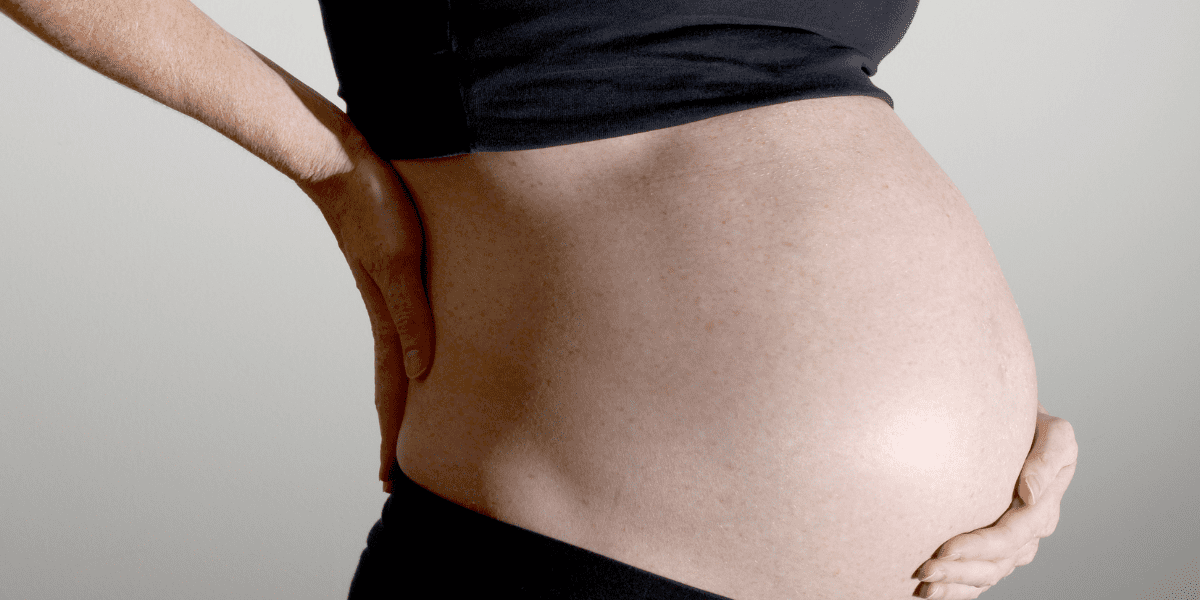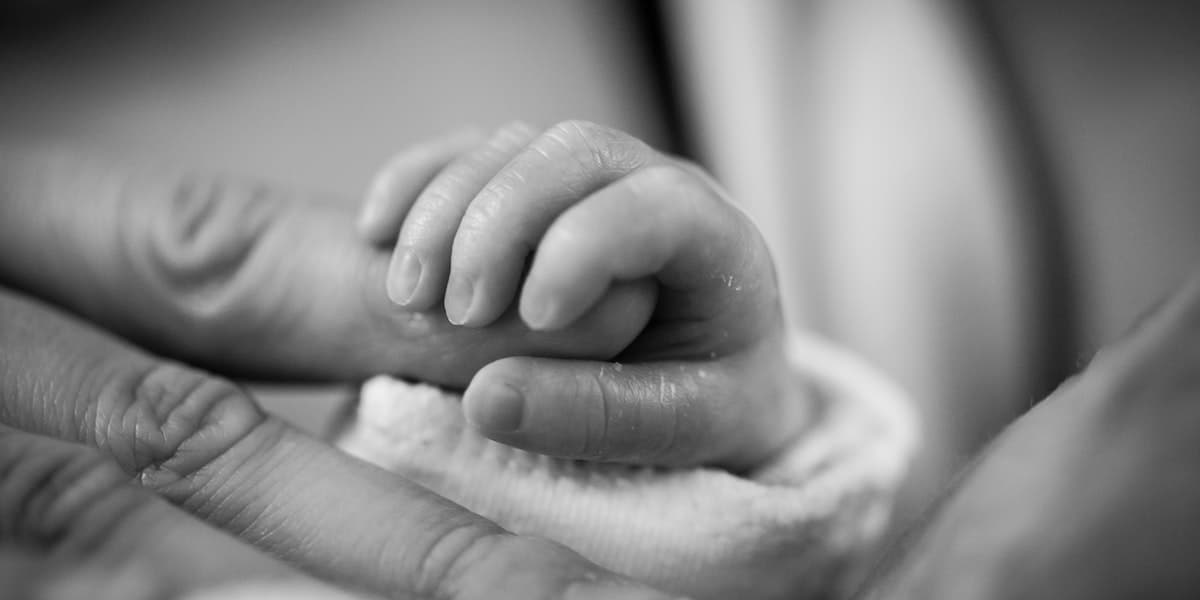If you are feeling cramping period-like pain it could be an early sign of labor. If you are experiencing pains at 40 weeks, and are unsure whether you are in labor, contact your doctor, or midwife and check your symptoms with them as a first measure.
40 Weeks pregnant, the end of your third trimester. What to expect in the last weeks of pregnancy.
At 40 weeks pregnant, your body has gone through all the changes expected during pregnancy and is preparing for the birth of your baby.
You may be glad that you are at the end of your pregnancy, however, you are likely due to experience a whole range of new pregnancy symptoms as your body changes in anticipation of your baby’s birth.
Knowing how your body is changing at week 40 and what to expect leading up to the birth can help you stay calm and feel more relaxed. This article will cover some of the common things to expect in the last few weeks of your pregnancy.
As an Amazon Associate, I earn from qualifying purchases. The links below may be affiliate links. Please read my disclosure policy for more information.
Feeling Period Pains with No Contractions

Period pains are to be expected towards the end of your third trimester, as your body prepares for birth. Your baby will be moving into the head-down birthing position and you may be feeling period-like pains but without contractions.
Period-like pains are likely to be either practice pains as your body progresses towards birth, or are an early sign of labor.
Practice pains are a normal part of your third trimester, however, feeling pains and cramps can be worrying, especially when you are at 40 weeks. Knowing why your body experiences pains, that do not progress to labor can help put your mind at ease.
Braxton Hicks
Practice pains, better known as Braxton Hicks, are caused by your uterine muscles flexing in preparation for the birth of your baby and are triggered by your pregnancy hormones. They can start from as early as 20 weeks of pregnancy but become more frequent and stronger towards the end of your pregnancy, especially in your third trimester.
Some women, particularly those carrying their first baby, often never notice Braxton Hicks, especially as they can be confused with the feeling of the baby wiggling and kicking inside your tummy.
However many women describe them as being painful and often think that they are in labor. Of course, feeling any strong pains, especially during your last trimester, is worth checking out.
What does Braxton Hicks feel like?
Braxton Hicks feels like an uncomfortable tightening pain that is felt at the top of your uterine muscles and causes your abdomen to become hard.
The sensation has a downwards feeling and can make your bump change shape or the skin on your bump can become very tight. They can last between 15 seconds to two minutes.
Some women describe the feeling of Braxton Hicks as similar to having a stitch, while others describe them as feeling like your baby has curled into a ball. It is more common to feel Braxton Hicks in the third trimester, especially as you progress towards birth.
What are the differences between Braxton Hicks and real labor?

The feeling of Braxton Hicks can commonly be mistaken for labor, however, this is how they differ:
- The pain does not increase in duration or intensity
- Do not have a rhythm or pattern
- Are varied in length – some pains last longer than others
- Are varied in strength – you may have a very strong pain followed by a weaker one
Braxton Hicks are usually triggered by being overly active, having a full bladder, or not drinking enough water. They are more likely to start at the end of the day when you are tired.
However, you can help reduce the sensation of Braxton Hicks by relaxing and sitting down if you have been overly busy, drinking more water, or taking a soothing warm bath.
Early labor
As it is very easy for Braxton Hicks to be mistaken for labor pains, how do you know when real labor has begun?
While Braxton Hicks can come and go, real labor pains continue and only increase in intensity and length. If you think that you are experiencing early labor it is a good idea to take note of your symptoms and monitor them closely.
Contractions often start as a dull period-like pain in your lower back and gradually get stronger and more painful. You may start to feel sick and feel very uncomfortable, which is another sign that your labor has begun.
During early labor, you will experience cramping-like pains as your cervix softens and slowly begins to move and open.
This is called the latent phase of labor and can start slow and last for a few hours or even a few days before you progress to active labor. You are considered to be in established labor when your cervix has dilated to 4cm.

If you are in the early stages of labor you should:
- Rest as much as possible as you will need to reserve your energy for the birth.
- Eat food like bananas, oatmeal or porridge, granola bars, and yogurt that will provide a good energy source and are unlikely to make you feel sick. Eating high-sugar foods will give you a quick hit of energy followed by a slump.
- Drink plenty of water and keep your fluids up.
- Take a soothing warm bath or sit in a shower if it’s more comfortable. The warm water will help soothe the pain.
- If you feel early labor pains during the night, and they are not too strong try to sleep as much as you can. If you experience pain during the day, only do light activities and avoid lifting heavy objects.
As your labor progresses you will start to notice that the intensity of the pain increases and becomes more frequent. The pain is also likely to appear at regular intervals and feels more like a wave than a cramp.
Your doctor or midwife should have advised you at what stage of labor you should contact them, but if you are unsure do not hesitate to call your hospital to check, especially if you have any concerns.
However, if you experience any of the following you should head straight to the hospital:
- Your waters break
- You are having 3 contractions or wave-like pains in every 10-minute period
- You are finding it hard to cope with the pain
- You feel concerned or anxious about anything
If you are having period-like pains but have ruled out labor with your midwife or doctor, you should ensure you have everything you need for the arrival of your baby, as period-like pains are a good sign it is close.
Preparing for the birth of your baby

Ensuring that you have done everything you need to in preparation for the birth, such as preparing for your postpartum aftercare and packing your hospital bags, will allow you to relax during the last few weeks or days of your pregnancy.
You can then be sure when labor does start you are fully prepared and have everything you need to greet the new addition to your family.
At week 40 you may go into labor within a matter of days or it may be a week or two more, especially if you are already feeling cramps.
Use the time that you have to check things off your baby preparation checklist. Such as;
- Make sure your hospital bag is packed to include items for you, your baby, and even your birth partner. Pack plenty of drinks and snacks for your stay in the hospital, as hospital food options can be limited.
- Create yourself a post-partum recovery kit regardless of how you plan to deliver. Include maxi pads, frozen pads with witch hazel to help soothe post-birth, and a soft donut seat.
- Prepare food for your first week with a newborn, by making meals for the freezer or making sure you have recently done a big grocery shop. Ask friends and family to help you make meals if you not feeling up to cooking.
- Install your car seat. Most new parents will travel home from the hospital by car, and setting up the car seat can be harder than it looks. If you struggle with installing the car seats many places can do this for you.
Remember if you are unsure of any symptom you are experiencing contact your medical care provider to get yourself checked out.
The health of both you and your baby are important and by week 40 you should be seeing a midwife regularly. Maternity staff and obstetricians are more than happy to help you and are the best placed to check you over and offer you advice.

